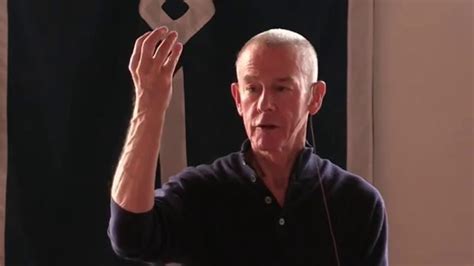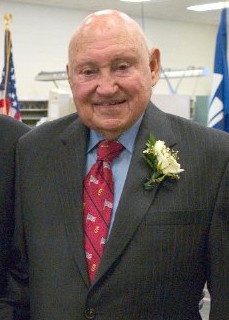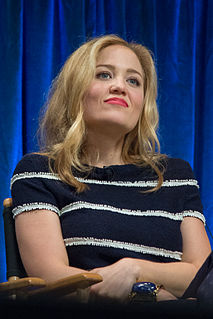A Quote by Marya Hornbacher
When you're teaching creative nonfiction, it helps to have written about your life in a very open way, because you can say, 'Look, how much are you willing to risk emotionally to write? How careful can you be with the other people you're writing about?'
Related Quotes
Frankly, I get much more sensitive about what's written about me than how I look in a photo. I'm so used to people seeing my image in plays and films that what they think about how I look is none of my business. If they says, "Hey, he doesn't look good," I'm like, Whatever, because I know I look different from day to day. But if you're up there putting your heart into something and people reject your performance, that's very painful. The written word can kick your ass.
Dharma is not about credentials. It's not about how many practices you've done, or how peaceful you can make your mind. It's not about being in a community where you feel safe or enjoying the cachet of being a 'Buddhist.' It's not even about accumulating teachings, empowerments, or 'spiritual accomplishments.' It's about how naked you're willing to be with your own life, and how much you're willing to let go of your masks and your armor and live as a completely exposed, undefended, and open human person.
I think that were I in the middle of an obsession to write about, say, sudden oak death in California or my grandchildren or time and memory and how they look when you get to be in your sixties, and I thought, "Well, yes but people are dying every day in Baghdad," I wouldn't feel guilty about not writing about Baghdad if I didn't have any good ideas about how to write about it.
I write fiction longhand. That's not so much about rejecting technology as being unable to write fiction on a computer for some reason. I don't think I would write it on a typewriter either. I write in a very blind gut instinctive way. It just doesn't feel right. There's a physical connection. And then in nonfiction that's not the case at all. I can't even imagine writing nonfiction by hand.
You learn so much with each book, but it's what you teach yourself by writing your own books and by reading good books written by other people - that's the key. You don't want to worry too much about other people's responses to your work, not during the writing and not after. You just need to read and write, and keep going.
I write books because I have always been fascinated by stories and language, and because I love thinking about what makes people tick. Writing a story... 'The Giver' or any other... is simply an exploration of the nature of behavior: why people do what they do, how it affects others, how we change and grow, and what decisions we make along the way.
Some of this book—perhaps too much—has been about how I learned to do it. Much of it has been about how you can do it better. The rest of it—and perhaps the best of it—is a permission slip: you can, you should, and if you're brave enough to start, you will. Writing is magic, as much the water of life as any other creative art. The water is free. So drink. Drink and be filled up.

































